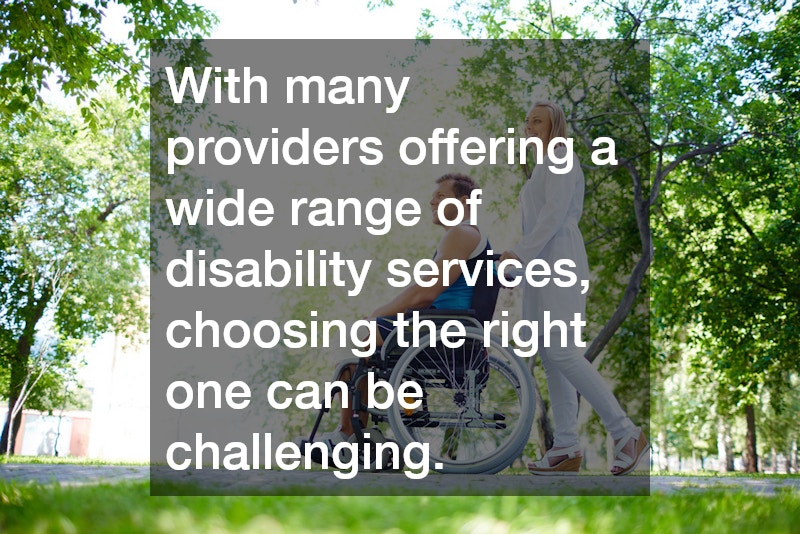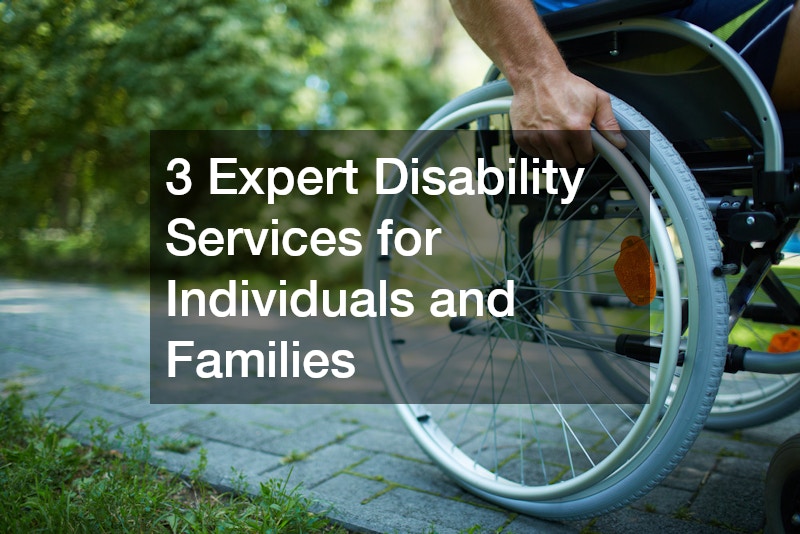Access to professional disability services plays a vital role in improving the quality of life for individuals living with a disability and their families. These services offer support that ranges from everyday assistance to long-term planning, enabling people to live more independently and with dignity. In Australia, the growing focus on person-centred care ensures that disability services are tailored to individual needs, offering flexibility, choice and support at every life stage.
Whether it’s help at home, guidance navigating the National Disability Insurance Scheme (NDIS) or access to community activities, expert disability services make a lasting difference in the lives of participants and their support networks.
In-Home Support and Daily Living Assistance
One of the most commonly accessed forms of disability services is in-home support. This type of care provides help with everyday activities, including personal hygiene, meal preparation, medication reminders and household tasks.
In-home support allows individuals to live safely in their own homes rather than moving into supported accommodation. It can be provided on a part-time, full-time or respite basis depending on the level of need. For families, this service offers peace of mind, knowing their loved ones are receiving reliable assistance from trained professionals.
Disability support workers are also trained to promote independence by encouraging individuals to participate in their routines, make choices and learn new skills. This approach enhances confidence and creates a strong foundation for a more active lifestyle.
NDIS Coordination and Planning Support
The NDIS has transformed how disability services are delivered in Australia. However, understanding and navigating the system can be complex. One of the most valuable services available is support coordination, which helps participants make sense of their NDIS plans and connect with the right providers.
Expert support coordinators work closely with participants and their families to identify goals, explore available services and develop a plan that suits their lifestyle. They also assist in managing budgets, booking services and advocating on behalf of participants during reviews or appeals.
For many families, this guidance is essential to getting the most out of their funding. By removing confusion and administrative stress, support coordination ensures that individuals receive consistent and effective care that aligns with their goals and preferences.
Community Access and Social Participation
Building meaningful connections and engaging in community life is important for emotional and mental well-being. Disability services that focus on social inclusion provide opportunities for individuals to participate in local activities, develop friendships and pursue hobbies or employment.
Community access programs are designed to suit a wide range of abilities and interests. These might include attending classes, joining clubs, volunteering or exploring public spaces with support. The goal is to build confidence in navigating social environments while encouraging personal growth.
Some organisations also offer specialised transport and companion services to ensure individuals can attend appointments, events or outings with ease and safety. This kind of support reduces isolation and helps families balance their caregiving responsibilities.
Empowering Individuals and Families
The strength of quality disability services lies in their ability to empower both individuals and families. For those living with a disability, having access to the right support means more control over their day-to-day lives. It enables participation in education, employment and relationships that might otherwise be limited.
For family members, disability services ease the emotional and physical strain of caregiving. They provide reassurance that their loved one is receiving skilled and compassionate support and they offer respite when needed. In many cases, families also receive guidance in advocacy, planning and future decision-making.
Importance of Personalised Service Delivery
No two people experience disability in the same way. Personalised service delivery ensures that care is matched to the specific needs, goals and preferences of each individual. This might mean adjusting routines, offering cultural sensitivity or incorporating feedback into service delivery.
Experienced providers take time to understand each person’s circumstances and create flexible support plans. This focus on personalisation improves satisfaction and outcomes while maintaining dignity and respect.
Families are also encouraged to be active participants in care planning. Their insights and involvement strengthen the relationship between providers and the people they support, leading to better communication and continuity of care.
Choosing the Right Provider
With many providers offering a wide range of disability services, choosing the right one can be challenging. Key factors to consider include the provider’s experience, qualifications, communication practices and ability to offer consistent, individualised support.
It’s important to look for services that promote inclusion, encourage skill development and value independence. Reading reviews, asking for references or speaking directly with support workers can help families make informed decisions.
Providers registered with the NDIS are required to meet strict quality and safeguarding standards, offering extra reassurance to participants and families.
Access to high-quality disability services empowers individuals and families to live with greater independence, confidence and peace of mind. Whether it’s daily living support, help navigating the NDIS or meaningful community engagement, expert providers offer the guidance and care needed to thrive.
With the right support system in place, individuals living with a disability can achieve their goals, connect with others and enjoy a fulfilling lifestyle tailored to their unique strengths and needs.

